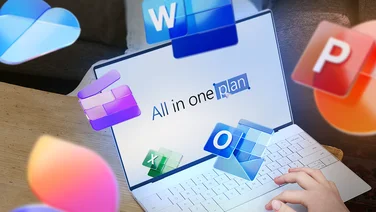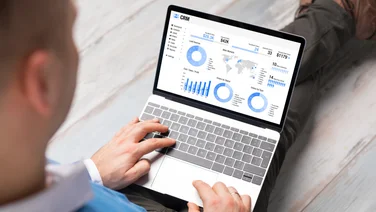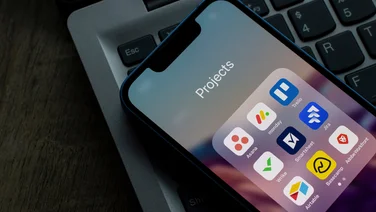To help us provide you with free impartial advice, we may earn a commission if you buy through links on our site. Learn more

Algoriddim’s Djay is a low-cost virtual DJ deck, styled to look like the real thing, but with a direct connection to your iTunes library; playlists and searching included.
This means you can kick off a session on the decks without the digital equivalent of lugging boxes of vinyl about.
The application’s interface is deceptively simple and consists of two on-screen turntables, complete with tonearms and a selection of sliders, and a music library list on the right. Drop in a track from the list to a turntable and it starts playing. Add another to the second deck and you can cross-fade between the two. Album cover art is mapped, picture disk-style, to the virtual vinyl on the decks, and track info, including countdown or count-up timers, is shown above each disk. Grab the tonearm to drop into different parts of a song, grab the turntable to scratch, and use the sliders to change a track’s tempo and the pitch independently. There’s even an automix option that takes over swapping tunes seamlessly while you get yourself a drink. All this sounds pretty good, right? Actually, that’s just the start of it; there’s a lot more to this application than you might think.
First of all, you don’t have to do everything by pointing and clicking. With a gesture-aware trackpad, you can use two and even three fingers to scratch and mix, and each deck has a matching set of keyboard shortcuts, including single-key commands for play/pause and back to beginning.
Going further with the controls, a set of small buttons along the window’s base provides paired controls for playing with BPM (beats per minute), setting up to three ‘drop-in’ cue points per track, auto-transition control, loop points, and the two most useful DJ-friendly effects; echo and reverb.
The BPM feature can be used to sync one song to another’s tempo. Find a track’s BPM by tapping a button to the beat and saving that data (stored in the MP3 file), then click on the Sync button to match it to whatever is on the other turntable. You’ll need to practice getting them playing perfectly and the lack of auto BPM means you may have to remake the count, though with a little preparation and practice, it can work extremely well. As well as embedding your own estimated BPM count, you can also set and store a loop in and out point in a track. Get your timing right (or do this by dragging the turntable manually) and you’ll catch a loop that you can throw different sounds over with the other deck.
If you have a USB headset or audio adaptor, you can use this as a cue monitor to prepare the next track without affecting what’s being played through the master sound output. On top of this, adding a mic (or using the built-in mic if you have one) lets you shout out to the room as you mix. To spice things up, the Sampler feature helps you record, store and drop in snippets of audio. A floating Sampler window provides three inputs from the turntables or mic for recording, saving and playing samples, each with loop, reverse, speed and volume controls.
Djay can be put into a full-screen mode, with or without the music library list, to clear your view of any distractions while you mix. You can record your efforts by clicking on the Rec button that nestles between the two decks. The preferences let you pick between 128kbits/sec AAC and AIFF outputs in high-quality 346kbits/sec, or top-whack 1.3Mbits/sec settings. It can even be set to record automatically, with a settable cut-off timer to help keep your disk from filling up. So the bottom line: is this serious? Well, something this much fun can’t not be a toy, but that doesn’t mean Djay isn’t the real thing too. It has its weaknesses, but it also has a surprising amount of hands-on control and just the kind of features you’d need up there in front of a crowd. It may not have the technical precision of the Traktor DJ family, but it’s an absolute blast.





